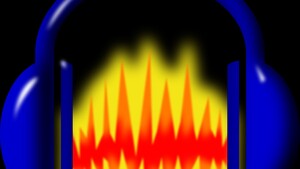Hallo,
ich habe mir kürzlich einen neuen Pc zusammengebaut (700€ GamingPC aus dem Forum, danke für die FAQ, war sehr hilfreich).
Lief alles problemlos. allerdings habe ich beim Musikhören ein leichtes Knistern festgestellt, dass manchmal kaum zu hören, manchmal aber auch ziemlich störend ist. Auch die Testklänge von Windows 7 werden ab und zu fehlerhaft wiedergegeben, auf einen "Fehler" kommen so 3-4 normale, vollkommen knisterfreie Versuche.
Habe den Ton mit Boxen, einem Headset und einem Kopfhörer sowie dem Mainboardaudioanschluss und dem Font-Anschluss meines Gehäuses (Stereo 3,5mm Klinke) überprüft, es muss also am System liegen:
Windows 7 64 bit
Mainboard: M4A87TD EVO
Audiochipsatz: VIA VT 1818
Treiberversion: 6.0.1.8100 (nichts neueres gefunden)
CPU: Phenom II 945
Graka: Gigabyte GTX 460 1GB
Ram: 4GB
Ist sowas bei Onboardsound normal? Wird das mit einer separaten Soundkarte besser? Bei meinem Laptop ( Acer Extensa 5635Z) ist mir sowas noch nie aufgefallen , und das ist nicht unbedingt besonders hochpreisig...
ich habe mir kürzlich einen neuen Pc zusammengebaut (700€ GamingPC aus dem Forum, danke für die FAQ, war sehr hilfreich).
Lief alles problemlos. allerdings habe ich beim Musikhören ein leichtes Knistern festgestellt, dass manchmal kaum zu hören, manchmal aber auch ziemlich störend ist. Auch die Testklänge von Windows 7 werden ab und zu fehlerhaft wiedergegeben, auf einen "Fehler" kommen so 3-4 normale, vollkommen knisterfreie Versuche.
Habe den Ton mit Boxen, einem Headset und einem Kopfhörer sowie dem Mainboardaudioanschluss und dem Font-Anschluss meines Gehäuses (Stereo 3,5mm Klinke) überprüft, es muss also am System liegen:
Windows 7 64 bit
Mainboard: M4A87TD EVO
Audiochipsatz: VIA VT 1818
Treiberversion: 6.0.1.8100 (nichts neueres gefunden)
CPU: Phenom II 945
Graka: Gigabyte GTX 460 1GB
Ram: 4GB
Ist sowas bei Onboardsound normal? Wird das mit einer separaten Soundkarte besser? Bei meinem Laptop ( Acer Extensa 5635Z) ist mir sowas noch nie aufgefallen , und das ist nicht unbedingt besonders hochpreisig...




